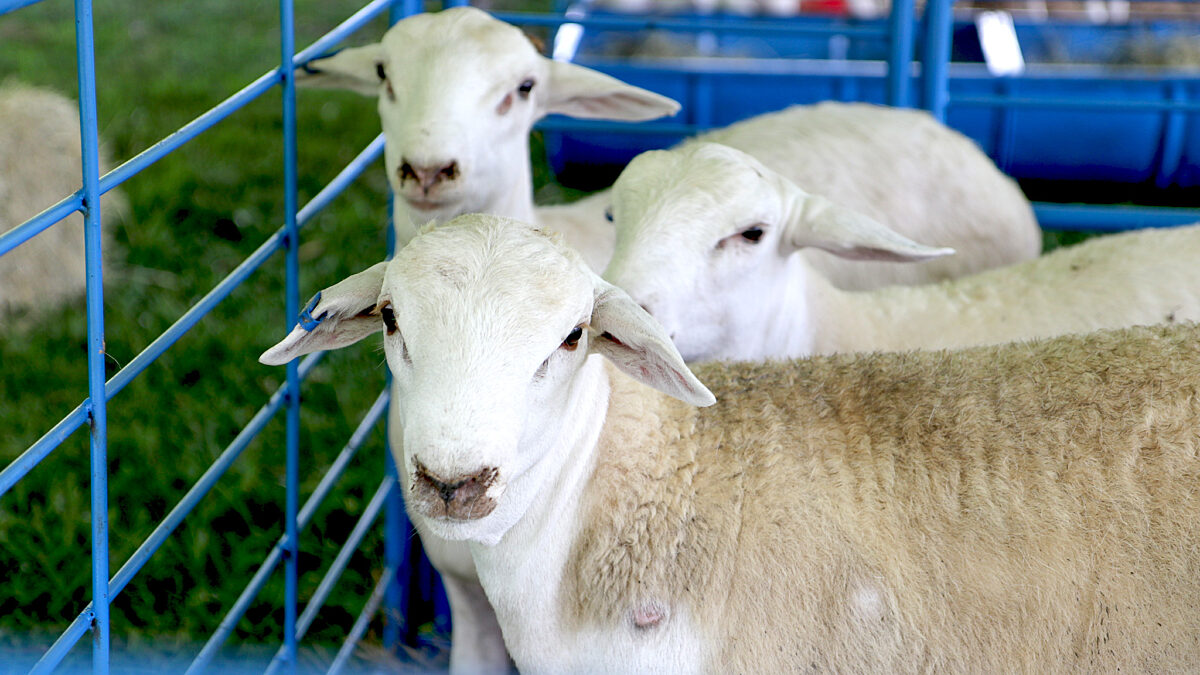Utah Rancher Turns Waste Wool into Nourishing Plant Pellets
Erin Anthony
Director, Communications

photo credit: Alabama Farmers Federation, Sheep
Erin Anthony
Director, Communications

One of the most difficult things about farming is staying profitable, especially for larger families, according to Albert Wilde, a sixth-generation Utah rancher and father of seven boys. Along with 2,800 sheep, Wilde, his father and two brothers raise cattle and irrigated crops, primarily alfalfa, on land that’s been in the family since the 1860s.
Always looking for opportunities to diversify his business and reduce waste, Wilde a few years ago began considering how he could use the 5 percent or so of the wool that buyers weren’t interested in because the quality wasn’t considered good enough for the athletic gear and other products they were making with it.
Thinking the wool would help hold moisture in the soil and perhaps provide other benefits for plants, Wilde did a little experimenting and was pleased with the results.
“Wool holds 20 times its weight in water. By incorporating it into the soil, the soil can stay moist and plants don’t dry out as quickly,” Wilde said. Plus, “wool is high in nitrogen, so it makes great fertilizer.”
The wool, which Wilde eventually pelletized to make it easier to use, also creates porosity — oxygen space in the soil — helping plants’ roots expand and grow.
When Wilde was approached by another Utah farmer looking for organic steer manure, he encouraged the farmer, who owned greenhouses, to see how the wool pellets worked for his tomato plants. Hesitant at first, the greenhouse grower found the wool pellets delivered on Wilde’s promise.
“Organic farmers really love it. It starts feeding on day one, rather than the 45-day lag time, even though it’s a slow-release and lasts over six months,” Wilde noted.
One of the biggest challenges with expanding the use of the pellets to row crops, says Wilde, is incorporating the pellets into the row, although he and his brother had great success modifying their drill when planting corn, which is no small feat considering the arid terrain.
Beyond the benefits to the plants, the wool pellets are good for the environment. They minimize the amount of fertilizer that could end up as runoff, which is more of a problem for homeowners, who tend to be less conservative in using fertilizer than farmers, according to Wilde — though having enough wool to meet homeowners’ needs will be a very tall, and perhaps impossible, order.
You can read more about the wool pellets at https://www.wildvalleyfarms.com/wool-pellets1.html.
With the American Farm Bureau Federation approaching its centennial, the organization invited StoryCorps to the 2018 Annual Convention in Nashville to capture Farm Bureau members’ unique stories as only StoryCorps can. This article is based on a StoryCorps interview Albert Wilde did with his friend Dave Streadbeck.
Listen to Albert Wilde talk about his wool pellets.